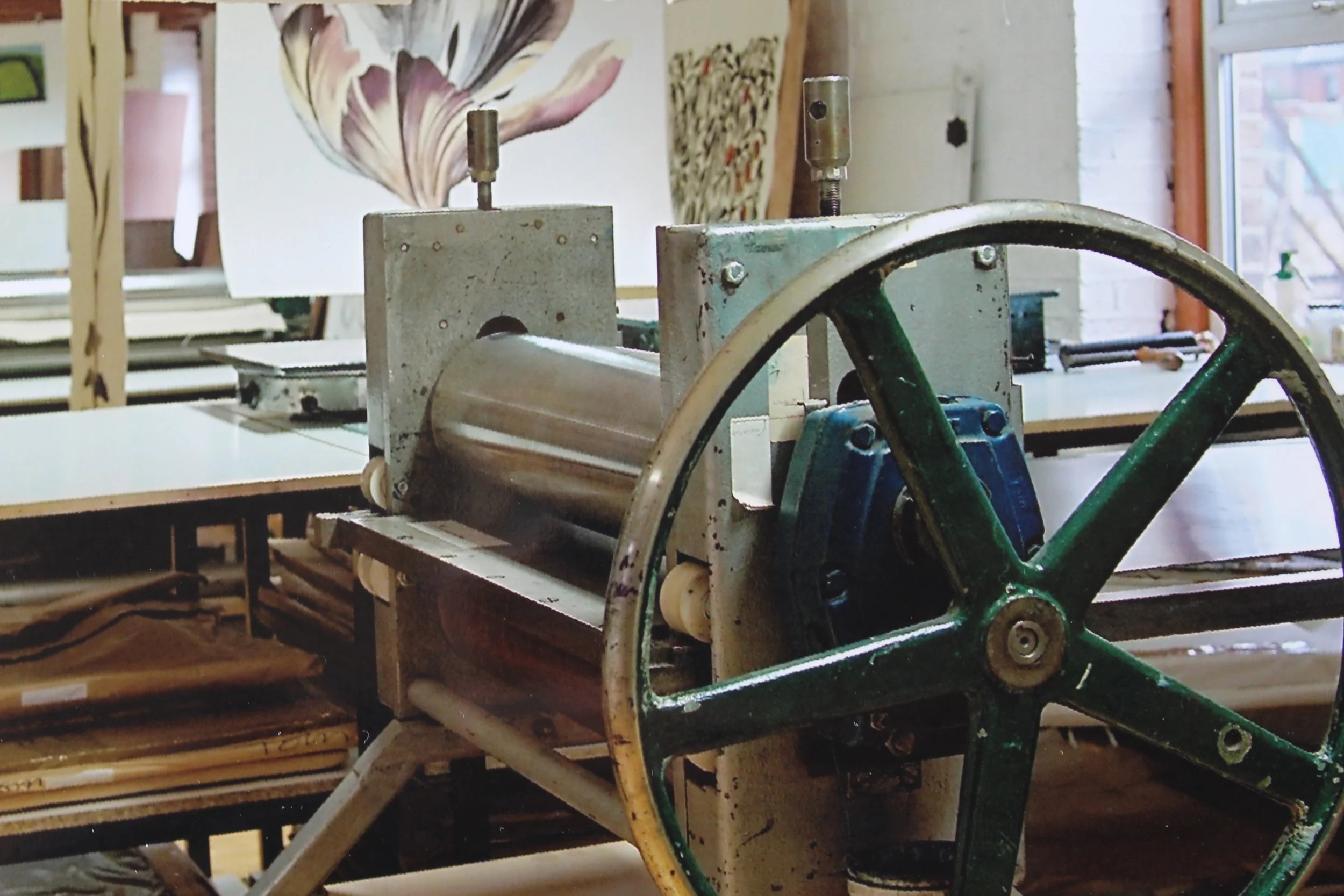When is a print not a print?
This is a reproduction of an article I wrote in Irish Property Buyer Magazine in April 2005
The word print is used so much that we forget that it was once a fully hand made process. Many famous artworks are reproduced mechanically and referred to as prints. However they are a world apart from original hand made prints (often referred to as fine-art prints), which are original artworks.
Today what is termed a 'fine-art print' is one where an artist has incorporated an image into hand made plates (wood, copper and other materials). The image is made onto a plate by cutting into it, or formed by painting acids or other embossing methods. The plates are then inked to print through a manual printing press. The print may be a one-off (a monoprint), or part of an edition where the artist repeats inking and printing the plate. If the work is numbered at the bottom 1/50 it means it is the first of 50 such handmade prints. The artist often tests the plates in terms of pressure or colour, and when it is right, they’ll pull a small number of Artists’ Proofs (labelled A/P – the sort of eureka of the set).
In Ireland many co-operative studios were set up following French models from the late 19th century. Now, it is a thriving art form, with fine-art print studios dotted all over the country. Most artists working in this medium tend to work in collective studios - sharing skills, ideas, equipment and vast cups of tea. Ireland’s key collective printmaking studios include Graphic Studio Dublin, Black Church Print Studio, Limerick Printmakers, Cork Printmakers among others. Buying fine-art prints is a terrific way to start an art collection on a modest budget!

